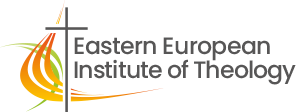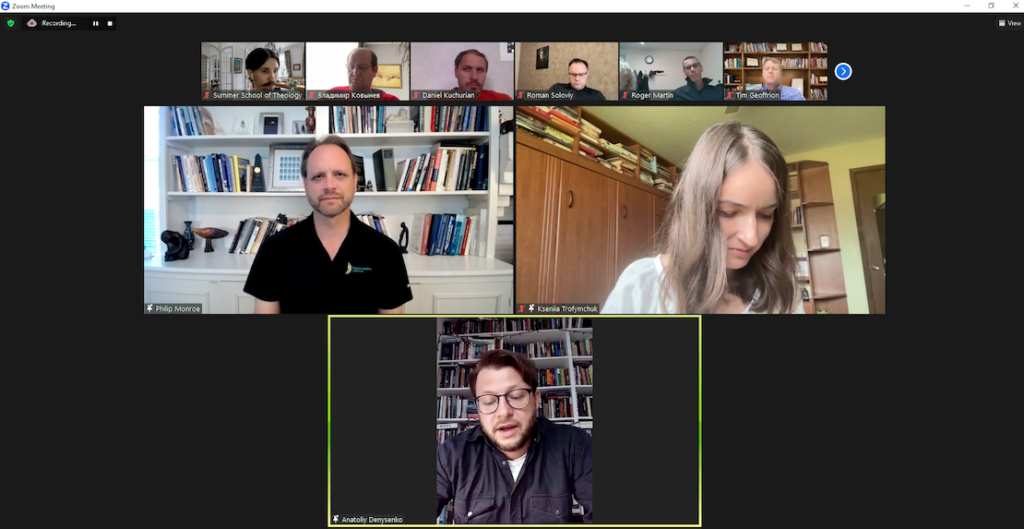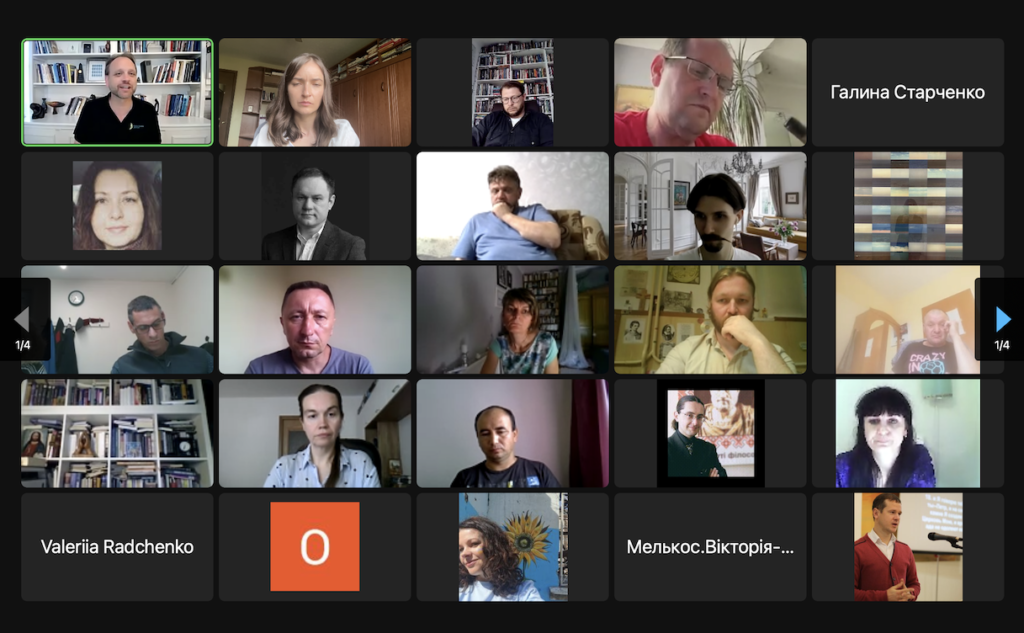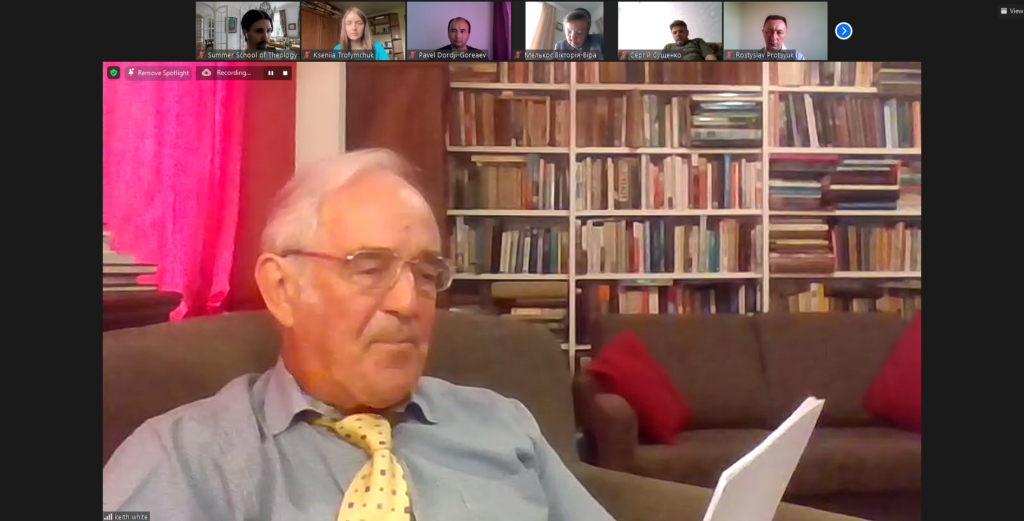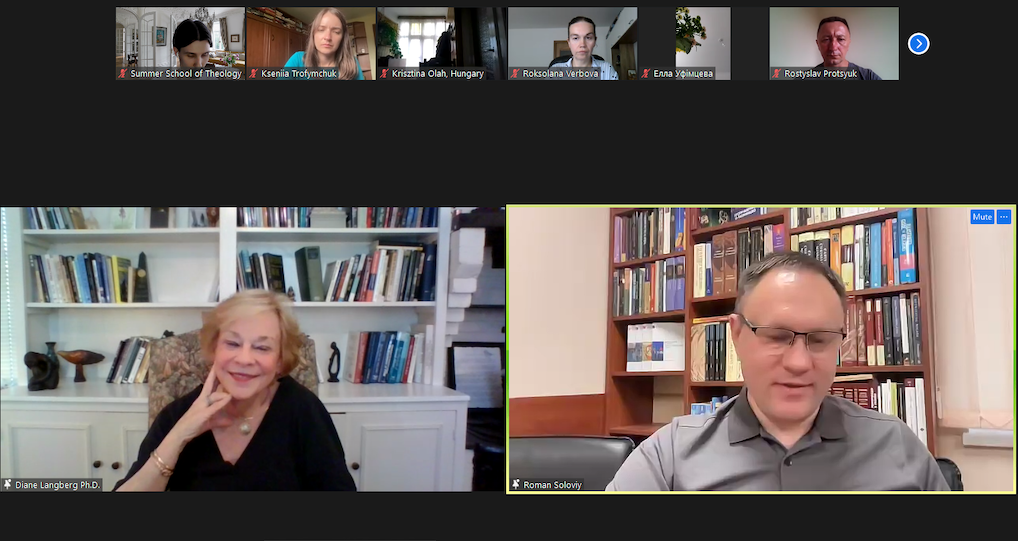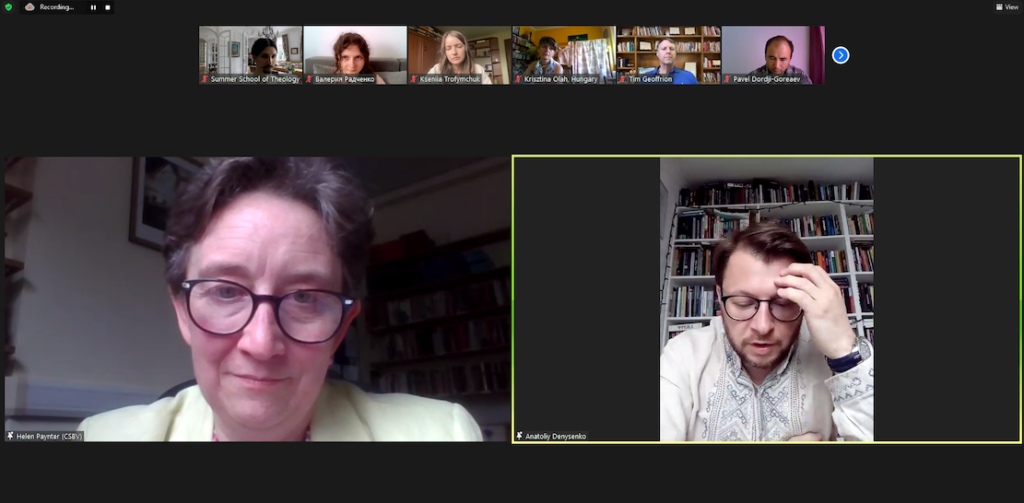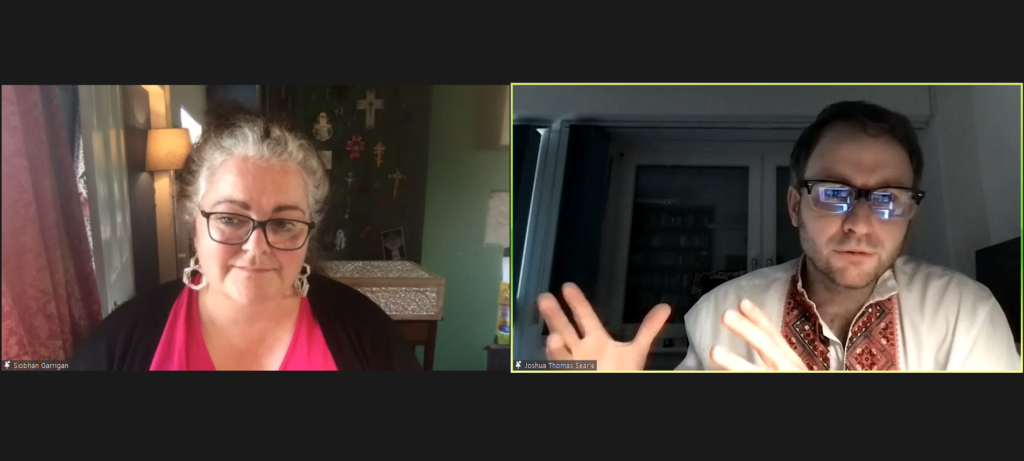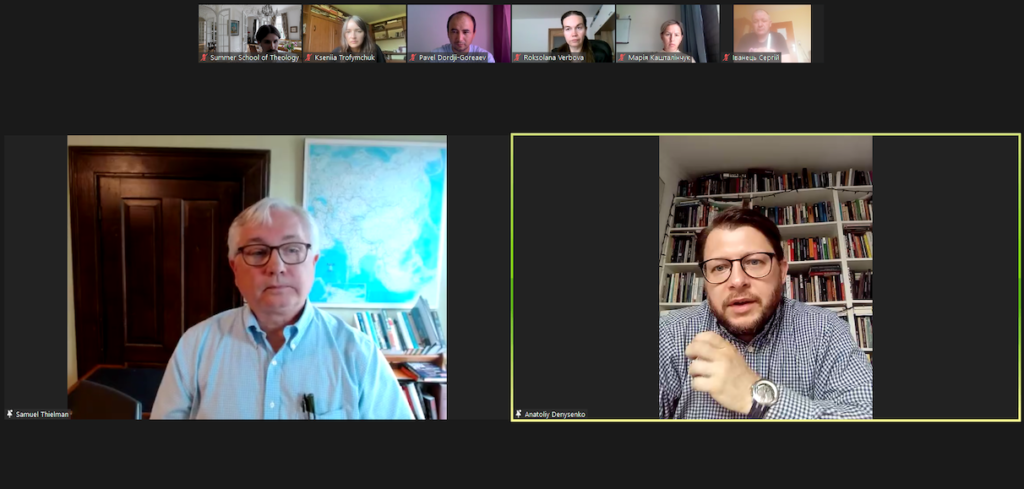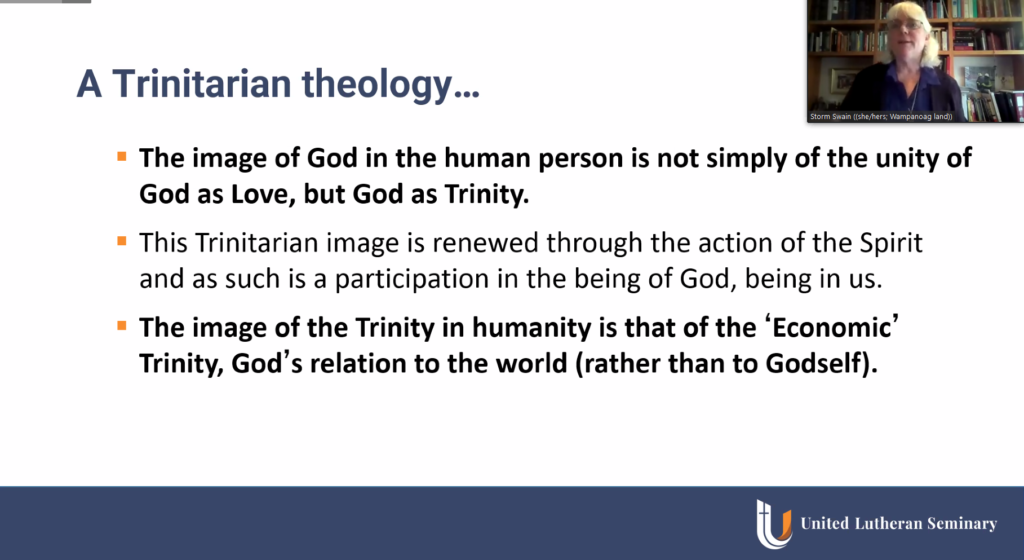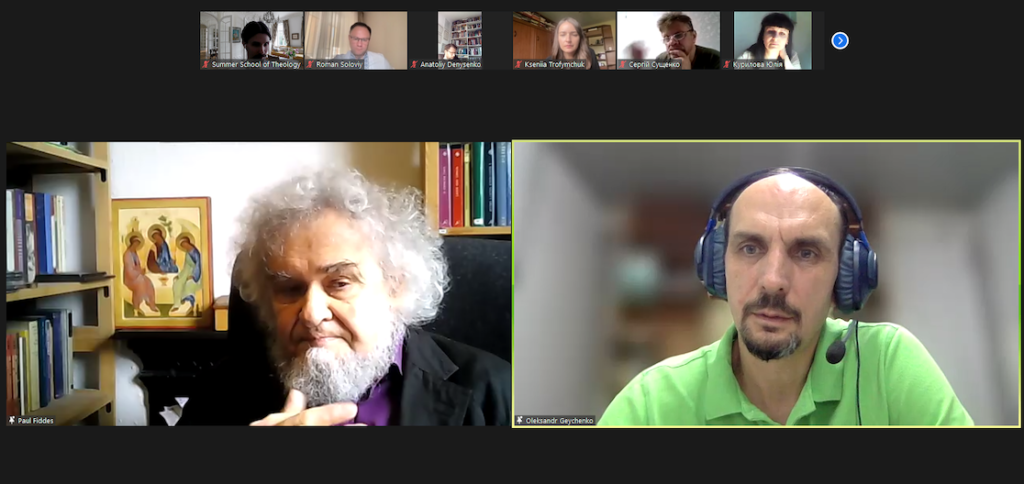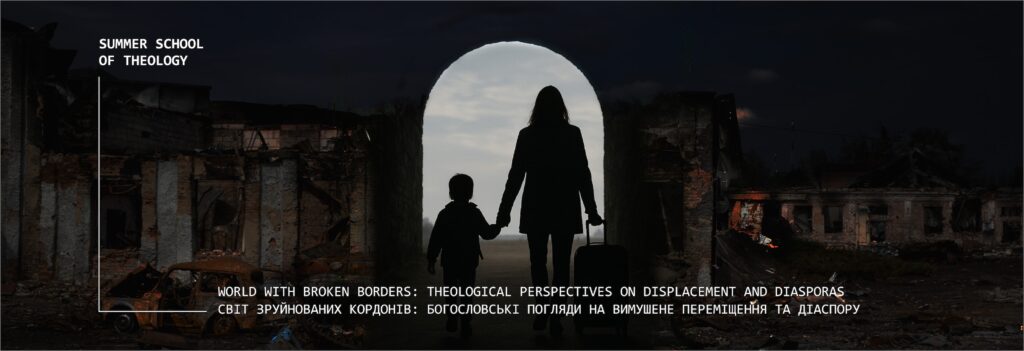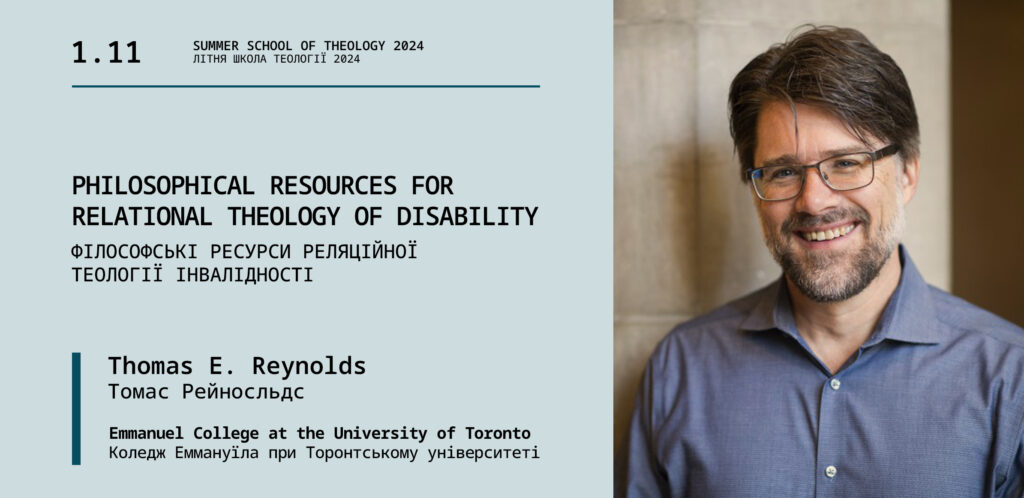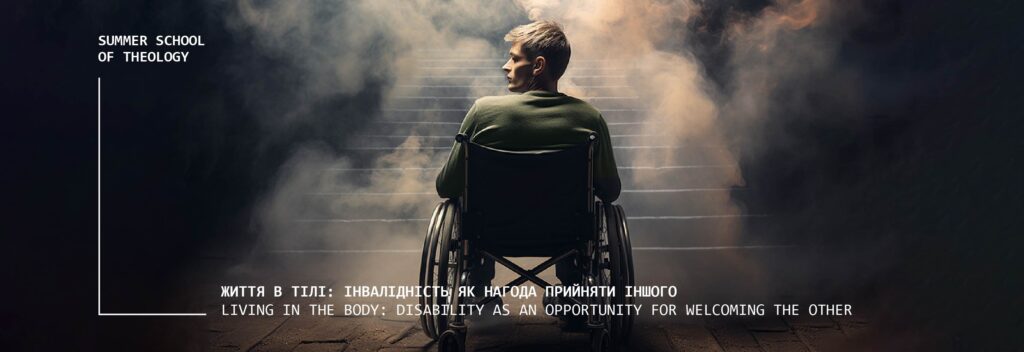The Session of the Summer School of Theology 2023 Came to an End
From July 31 to August 5, 2023, the Eastern European Institute of Theology held an online session of the Summer School of Theology on "Wounds of Today’s World: Doing and Living Theology in the Context of Trauma."
The session's topic stems from Russia's aggression against Ukraine and the wounds that the war has caused and continues to cause to a sovereign country: tens of thousands of dead, wounded and missing, destroyed cities, and a migration crisis. And although a traumatic experience in the modern world is not limited to the Russia-Ukraine war, it has become the epicenter of all conceivable traumas people face.
The purpose of the school was not so much to find answers to difficult questions about the causes of suffering but to learn from others and their experience, to reflect on diverse Christian approaches that help to overcome deep distress and turn wounds into testimonies of life. Such experience should create opportunities for serving others, as well as a space of coexistence where dignity and freedom of the individual are valued. For this reason, the organizers of the school brought together specialists - psychologists and psychiatrists from different Christian traditions, as well as philosophers and theologians who focus their research on violent narratives and ideologies, social injustices, undue suffering and emphasize the role of theology in social and political changes that will prevent trauma or ease its aftermath.
The summer session started with a lecture by psychologists Vyacheslav Khalansky (MH-care, Ukraine) and Maryana Mykolaychuk (Ukrainian Catholic University, Ukraine). In their lecture, in addition to statistics on the current situation caused by the Russian-Ukrainian war, they drew attention to the importance of a sense of collectivity (the collective healing model) to overcome the consequences of the war in Ukraine: emotional exhaustion, loss of self-awareness, social alienation, regression and rumination, loss of meaning and values in life.
Psychologist Philip G. Monroe (Langberg, Monroe & Associates, USA) emphasized the role of faith in overcoming trauma and shared practical advice on overcoming severe and complex trauma. Such advice can be helpful for those experiencing trauma and those supporting victims: church leaders, pastors, chaplains, and volunteers. Using the example of the prophet Elijah, Philip Monroe explains what kind of help a person who has experienced trauma may need: "The community of Christians should be a place that does not make people feel something different from what they actually feel“.
Theologian Scott Harrower (Ridley College, Australia) shared his own traumatic childhood experience under military dictatorships in Argentina. He offered a Trinitarian response to horrors and trauma, explaining how the image of the Trinity can help restore a sense of security, dignity, hope for a normal future after trauma, and social connections.
Keith J. White, founder and Chair of the Child Theology Movement (Spurgeon's College, England), shared his own research and experience of how the traumatic events of war negatively affect child development. Keith White described five essential components of restoring a safe space where children can find acceptance and healing.
During the lecture, psychologist Diane Langberg outlined a scheme for overcoming trauma: to understand what it means to live with trauma and what reaction to trauma will help rather than cause even more harm.
The research of theologian Helen Paynter (Bristol Baptist College, England) has demonstrated how silencing biblical texts on violence can suppress the voices of victims and their call for justice. Helen offers an honest hermeneutic of biblical violence that she believes can prevent misuse of the Bible.
Esther Zimmerman (Lancaster Bible College, USA) explained how trauma affects a child's growth and spiritual development. She also suggested practical ways that parents and ministry leaders can join their children in the spiritual journey even in traumatic circumstances: “The challenge for Christians working with abused, neglected, impoverished, war-affected or orphaned children is to find ways of conveying to them that God loves them despite the apparent evidence to the contrary.”
Philosopher Julijana Mladenovska-Tešija (Evangelical Theological Seminary, Croatia) discussed how the dominant narrative of war memory functions in shaping Croatian national identity, using the example of the city of Vukovar. Following a narrative approach (René Girard, Michel Foucault), she presented two stories from her experience visiting Vukovar and analyzed their transformative power.
Theologian Siobhan Garrigan (Trinity College Dublin, Ireland) shared her research on the trauma of displacement and offered a theological response to the issue of displacement in the modern world and what role theology can play in socio-political change. This Christian rethinking of the concept of home challenges its political appropriation by contemporary forms of consumerism and extreme versions of nationalism.
In his lecture, psychiatrist Samuel B. Thielman offers a Christian approach to building psychological resilience as an alternative to Eastern spiritual practices. He explores how prayers from the Book of Psalms can help people who have suffered from distress caused by severe adverse events (post-traumatic stress disorder) and those affected by compassion fatigue (vicarious trauma) or burnout.
Chaplain and theologian Storm Swain prompted reflections on what kind of theology we seek to develop in the context of trauma and how we can learn from other catastrophes to mitigate the effects of ongoing or future trauma. Her response to the experience of 9/11 is Trinitarian theology, in which the Trinity reveals itself through its relationship with the world as One who holds, suffers, and transforms. Following this Trinitarian model of relationship can help a person get through a traumatic experience and also become a support for others.
The last day of the School brought into focus the interaction between literature and theology. Writer Sarah Clarkson (University of Oxford, England) explores the theological role of living traumatic experiences and the formative power of beauty that we can find in God's glory and goodness. This Balthasarian theopoetics connects to her personal story of struggle with mental illness. Her theology is not apologetic, guided by arguments for the existence of God, but rather poetic, guided by faith as a daily experience of encountering beauty that leaves room for hope in the darkness of suffering. In his lecture, theologian Paul S. Fiddes (University of Oxford, England) offers his theological perspective on the problem of suffering and explores how the connection between theology and literature becomes a way of experiencing the trauma, destruction, and death that war brings. For this reason, he turns to the poetry of World War I.
Thus, the School became a six-day space for both intellectual and practical growth for participants from more than ten countries: Ukraine, the USA, Canada, Germany, Poland, Romania, Latvia, Belgium, the Netherlands, Austria, Ireland, England, Kazakhstan, Indonesia, Nigeria, and others.
The Institute is thankful for making this Summer School of Theology possible - to the speakers who showed incredible commitment in preparing lectures and discussions, to the participants who attended and actively participated in many lectures, and to the UK-based Dnipro Hope Mission for its sponsorship. The Institute also would like to thank Langham Publishing and ScholarLeaders International for their organizational support.
The team at the Eastern European Institute hopes this school will inspire future projects and encourage continuous development of the evangelical academic culture in Ukraine.
Speakers of the School: Paul S. Fiddes, Diane Langberg, Philip G. Monroe, Helen Paynter, Keith J. White, Siobhan Garrigan, Samuel Thielman, Sarah Clarkson, Scott Harrower, Esther Zimmerman, Julijana Tesija, Maryana Mykolaychuk, Viacheslav Khalanskiy, Storm Swain.
Moderated by Roman Soloviy, Anatoliy Denysenko, Joshua T. Searle, Oleksandr Geychenko, Kseniia Trofymchuk.
Interpreters: Svitlana Bregman, Marichka Androshchuk, Oleksandr Geychenko.
Administrative support: Nazar Sharak.
Design: Iryna Verbitska.
Fundraising: Taras Dyatlik, Kateryna Shutko
Project Coordinator: Kseniia Trofymchuk.
